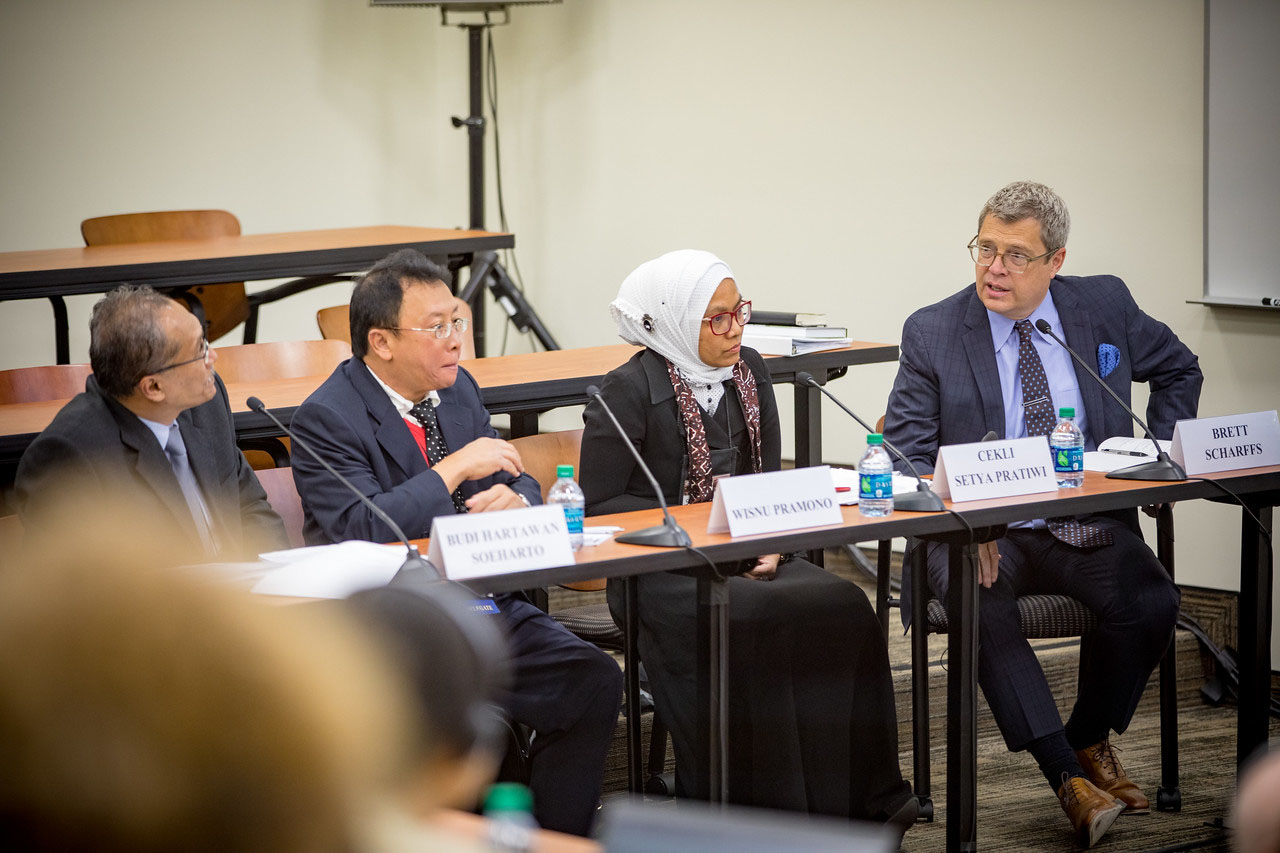Symposium 2017: Indonesia

by Justin Miller, Symposium Executive Committee Member and BYU Law Student
Brett Scharffs, Director of the International Center for Law and Religion Studies at the BYU Law School moderated the Tuesday afternoon breakouts session on Indonesia. The panelists were Budi Hartawan Soeharto, Secretary of Directorate General of Labor Inspection and Occupational Safety and Health, Ministry of Manpower of the Republic of Indonesia; Wisnu Pramono, Director of Foreign Worker’s Placement, Ministry of Manpower; and Cekli S. Pratiwi, Lecturer, Faculty of Law, Universitas Muhammadiyah Malang. They discussed the situation of Freedom of Religion or Belief (FoRB) in Indonesia.
Between 2010 and 2015, while government restrictions on FoRB have remained high, social hostilities have decreased. Some of the governmental restrictions facing Indonesia include that some religious groups are banned including the Shia and the Ahmadiyya. The presenters emphasized the importance of remembering that despite being the country with the greatest number of Muslims, Indonesia is not an Islamic nation.
Indonesia’s efforts towards accommodating FoRB include ratification of international legal instruments (UNC, UDHR 1948, ICCPR, The Vienna Convention, and ASEAN). International human rights principles from these documents are further embodied in the Indonesian Constitution.
The Indonesia Constitutional Court reviews any laws under the Constitution. In 2010, the court concluded that the Blasphemy Law allows the court to restrict a forum externum but not a forum internum. Resort to the court to decide matters of religious freedom is an example of a peaceful forum to which various religions can discuss the application of FoRB. However, strong restrictions on atheism remain in place. A concluding example of maximizing freedom of religion and belief is the mix of buildings near each other from various religious traditions. Thus, Indonesia can be an example of religions co-existing.